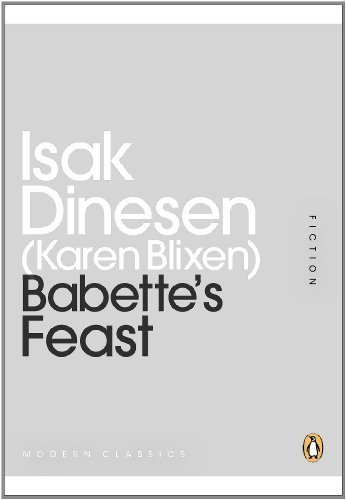David Conway's Blog, page 8
April 19, 2013
Boston bombing might bring Washington closer to Moscow
If, as reported, the Boston Marathon bombers turn out to be Chechens, then one consequence (probably unintended) may be a closer relationship between Washington and Moscow.
Vladimir Putin and his government have been claiming for years that the Chechen rebels are part of a global terrorist network.
In November 2011 Time magazine said: “Even before Putin became Russia’s President in early 2000, and long before the Twin Towers fell, he had invoked the idea of a war against global terrorism to justify Russia’s war in Chechnya. The terrorism aspect, at least, was true. Chechen separatists, who renewed their centuries-old struggle for independence soon after the Soviet Union fell, had resorted to terrorism as early as 1995, when they seized a hospital in the Russian town of Budyonnovsk and held more than 1,500 people hostage. Then in 1999, a series of apartment bombings, also blamed on the Chechens, killed hundreds of people in Moscow and other Russian cities. Putin responded by launching Russia’s second full-scale invasion of Chechnya in less than a decade. “He received carte blanche from the citizens of Russia,” says Mikhail Kasyanov, who was Russia’s Finance Minister at the time. “They simply closed their eyes and let him do whatever he wanted as long as he saved them from this threat.”
If the FBI and CIA want to know more about Chechen terrorism, then they will inevitably find themselves talking to Russia’s FSB.
Read more: http://www.time.com/time/world/article/0,8599,2093529,00.html#ixzz2QvBcxFA4
Russian troops during the Chechen War.


April 18, 2013
The Cruel Sister by John Faed

The Cruel Sister by John Faed
I just came across this painting. Perhaps I should have used it as the cover image for my novel?


Seen in Penrith
Behind a grey façade
The exterior of a restaurant is not always a reliable guide to quality. In fact, experience often points the other way. I can think of at least twenty great restaurants that hide behind dull, sometimes even shabby, façades. So, when my wife and I walked past Emile’s Restaurant in Putney, I mentally discounted the smart grey conservatory which protrudes into Felsham Road. Nonetheless, having stopped and scrutinised the menu, we were tempted to eat there a few days later.
The dining room is small and intimate. Formerly the sitting room of a terraced house, it has been extended by a modern conservatory. Emile tells me there are larger rooms next door for functions and busy evenings.
For my starter I chose black pudding topped with smoked haddock and poached egg, and served with sautéed mushrooms. It is always difficult to combine fish and meat successfully, but when it works the results can be wonderful (paella, jambalaya etc.). Such strong flavours need careful blending, but this dish worked perfectly, the smoky haddock did not conceal the rich, sweet black pudding and the dish achieved what a good hors d’oeuvre always should, i.e. sharpened my appetite for the following dish.
For my main course I had twice cooked belly of pork, with sage and apple potatoes. The pork was succulent and perfectly cooked, and the potatoes were served as a Dauphinoise which complemented the dish faultlessly.
Sue chose a feta cheese and tomato soufflé, followed by grilled fillet of Pollock on Grilled polenta with halloumi and black olives. She confirmed they were both delicious.
We ordered a bottle of 2011 La Serre Cabernet Sauvignon from the South of France. It cost £17.50 and could easily have passed for a good Bordeaux.
Emile joined us and chatted for a while, talking of the restaurant’s early days in Wandsworth Bridge Road. He is an amiable host and even managed to remember my name on a first visit.
This is as good a restaurant as I know in South West London. I would only rate Chez Bruce above it, and that is nearly twice the price. We look forward to becoming regulars; we already feel that we are.


April 16, 2013
The rise of the female boss
Three generations after women first complained of a glass ceiling, just twenty-one have become chief executives of the world’s biggest 500 companies, and even that small number is a record, with half of them landing the top job between 2011 and 2012. A study by Dow Jones recently found that start-ups with five or more females in executive positions only failed 39% of the time, as opposed to an average of 75% for the typical start-up. The report also found that the fewer females, the more likely the start-up was to fail. A recent EU proposal wants 40% of non-executive directors at public companies to be female, and new books from Facebook Chief Operating Officer Sheryl Sandberg, and former State Department official Anne-Marie Slaughter are seeking to empower women in the boardroom.
Paradoxically, I found myself on radio to debate this topic with a businesswoman who thinks women need no help to succeed, only accommodating husbands. Nor is she alone in that view, Helena Morrissey, Chief Executive Officer of Newton Investment Management, and founder of Club 30 per cent, has a similar stance. She formed the 30 Per cent Club to press companies to employ that many female directors. So far she has persuaded more than 20 chairmen, about half from the FTSE 100, to reach for that target.
It’s a subject I dealt with in my book Cruel Sister, which charts the rivalry between two sisters locked in a struggle to take control of a global giant. It is a story of our times. One of the biggest social changes since World War Two has been the difference in attitudes towards women at the top. I took a simple premise for my book: imagine if King Lear were dividing his kingdom today. I felt sure that the modern equivalent would be a big multinational company. Powerful men have always sought to keep influence and wealth within their families. I was recently struck by Rupert Murdoch’s failed efforts to hand News Corporation over to his son James, despite his daughter Elizabeth being a successful entrepreneur in her own right.


Forty mile sponsored row in aid of #HelpForHeroes and #LondonRowingClub
I am taking part in a sponsored row in aid of the “Help For Heroes” and to enable my rowing club, London Rowing Club, to buy boats (- moneys to be split equally). Whilst the “Help For Heroes” Charity is well known and well publicized, you may wonder about helping us to buy boats.
A top racing boat does come cheap, about £28,000, but this is not what I am asking for your help. Following the success of the Olympics last year we have been flooded out with youngsters (and not-so-youngsters) wanting to learn to row (L2R). We have bought from our own funds 4 training boats (more stable, easy to row, safer, but definitely not racing boats). With these we can train only 14 people at any one time. So far we have run 2 courses and are in the middle of our 3rd. These have proved a tremendous success and the continuation rate from these 2 is well above 75%. (The drop-out rate is attributed to pressure of work, going to University with a hope of returning later, postings abroad etc). A few of these Novices have proved themselves already and have moved up into the Senior Squad, possibly being able to compete at Henley Royal Regatta this year. This is not quite “Zero to Hero” but getting close. They still have a little way to go to emulate our Club Olympians and World Champions. The rest of the Novices have already taken part in several regattas on the Thames and are proving themselves a powerful force.
The pressure is on us to increase the size of each course. We still have over 100 people on our books who want to learn to row (L2R). We need more training boats; this is our limiting factor. The second priority is to give these new Novices suitable racing boats to be able to compete in regattas from now on. (I was going to say “this summer” but rowing is an all-year sport with regattas every weekend if you wish.)
Please take a look at the attached summary of what we are attempting. The distance of 40 miles is not as far as London to Brighton but is about 9 ½ times the Boat Race Course! I hope that you will agree that this is a worthy challenge and for worthy causes. If you can contribute, please follow the link in this attachment: http://www.londonrc.org.uk/sponsored-row.Thank you.


April 15, 2013
Vive la différence!
On Twitter I came across this strapline below a French woman’s name:
“Avant de vous remettre en question au point de faire une dépression, vérifiez avant tout que vous n’êtes pas simplement entouré de gros cons.”
Translated into English this means, “Before you give in to depression, first make sure you’re not surrounded by complete arseholes!”


April 14, 2013
Babette’s Feast by Karen Blixen
This afternoon I reread Babette’s Feast, a short story by Karen Blixen, best known for of Out of Africa.
The theme of a shared meal, and its ability to transform events or even to change lives, is a common one in literature. Writers have always used food and wine to bring about changes in mood, confessions, confrontations, and of course, seductions. From the Last Supper to Monty Python’s The Meaning of Life, meals have meant drama.
Babette’s Feast is a beautiful jewel of a story set in a quiet, rigorously Lutheran village in Norway. Two spinster sisters live a life of religious observation, modesty and prayer among the congregation of their late father, who had been the minister. Babette, a refugee from the Paris Commune, arrives unexpectedly with a letter from a long-rejected suitor of the younger sister, begging to be given shelter.
For twelve years she works tirelessly and becomes a model servant. She rarely, if ever, speaks of her former life, until she unexpectedly wins ten thousand Francs in a lottery.
He parting gift to the sisters is a French meal, to which twelve of their friends are invited. General Lorens Löwenhielm arrives with his aunt, but finds himself brought low by melancholic thoughts of his youth. Returning to the house has reminded him of his unrequited love for the younger sister.
As a young officer he had spent several years in Paris, where he gained a taste for, and some knowledge of, fine food and wine. To his astonishment, the meal flawlessly recreates the signature dishes of the Café Anglais, and its celebrated chef, whose work he had once been captivated by.
This is an enchanting story, simply and skilfully told, by a writer at the height of her powers. Perhaps Blixen too, on her farm in Africa, sometimes yearned for the magic of great food and conversation.

Karen Blixen
Babette's Feast (Penguin Mini Modern Classics)
Rereading Babette’s Feast by Karen Blixen
This afternoon I reread Babette’s Feast, a short story by Karen Blixen, best known for of Out of Africa.
The theme of a shared meal, and its ability to transform events or even to change lives, is a common one in literature. Writers have always use food and wine to bring about changes in mood, confessions, confrontations, and of course, seductions. From the Last Supper to Monty Python’s The Meaning of Life, meals have meant drama.
Babette’s Feast is a beautiful jewel of a story set in a quiet, rigorously Lutheran village in Norway. Two spinster sisters live a life of religious observation, modesty and prayer among the congregation of their late father, who had been the minister. Babette, a refugee from the Paris Commune, arrives unexpectedly with a letter from a long-rejected suitor of the younger sister, begging to be given shelter.
For twelve years she works tirelessly and becomes a model servant. She rarely, if ever, speaks of her former life, until she unexpectedly wins ten thousand Francs in a lottery.
He parting gift to the sisters is a French meal, to which twelve of their friends are invited. General Lorens Löwenhielm arrives with his aunt, but finds himself brought low by melancholic thoughts of his youth. Returning to the house has reminded him of his unrequited love for the younger sister.
As a young officer he had spent several years in Paris, where he gained a taste for, and some knowledge of, fine food and wine. To his astonishment, the meal flawlessly recreates the signature dishes of the Café Anglais, and its celebrated chef, whose work he had once been captivated by.
This is an enchanting story, simply and skilfully told, by a writer at the height of her powers. Perhaps Blixen too, on her farm in Africa, sometimes yearned for the magic of great food and conversation.

Karen Blixen
Babette's Feast (Penguin Mini Modern Classics)
April 13, 2013
The venom unleashed
Although her enemies had long promised a party, the venom unleashed by Margaret Thatcher’s death still surprised many of us. Nothing has so divided the nation since the miners’ strike of 1984, but that event alone cannot explain the hate. The wounds of twenty-nine years may still be raw, but much of the vitriol comes from people too young to remember. Is it something else, something less political: her voice, her demeanour, her dress even, which has made Maggie the bête noire of so many people? Was it the fact that she so perfectly encapsulated the traits which we often attribute to the British lower-middle class: ambitious, forthright, house proud, vulgar, and strident? We seem still, to be very far from the “nation at ease with itself” which John Major promised when he replaced her.














